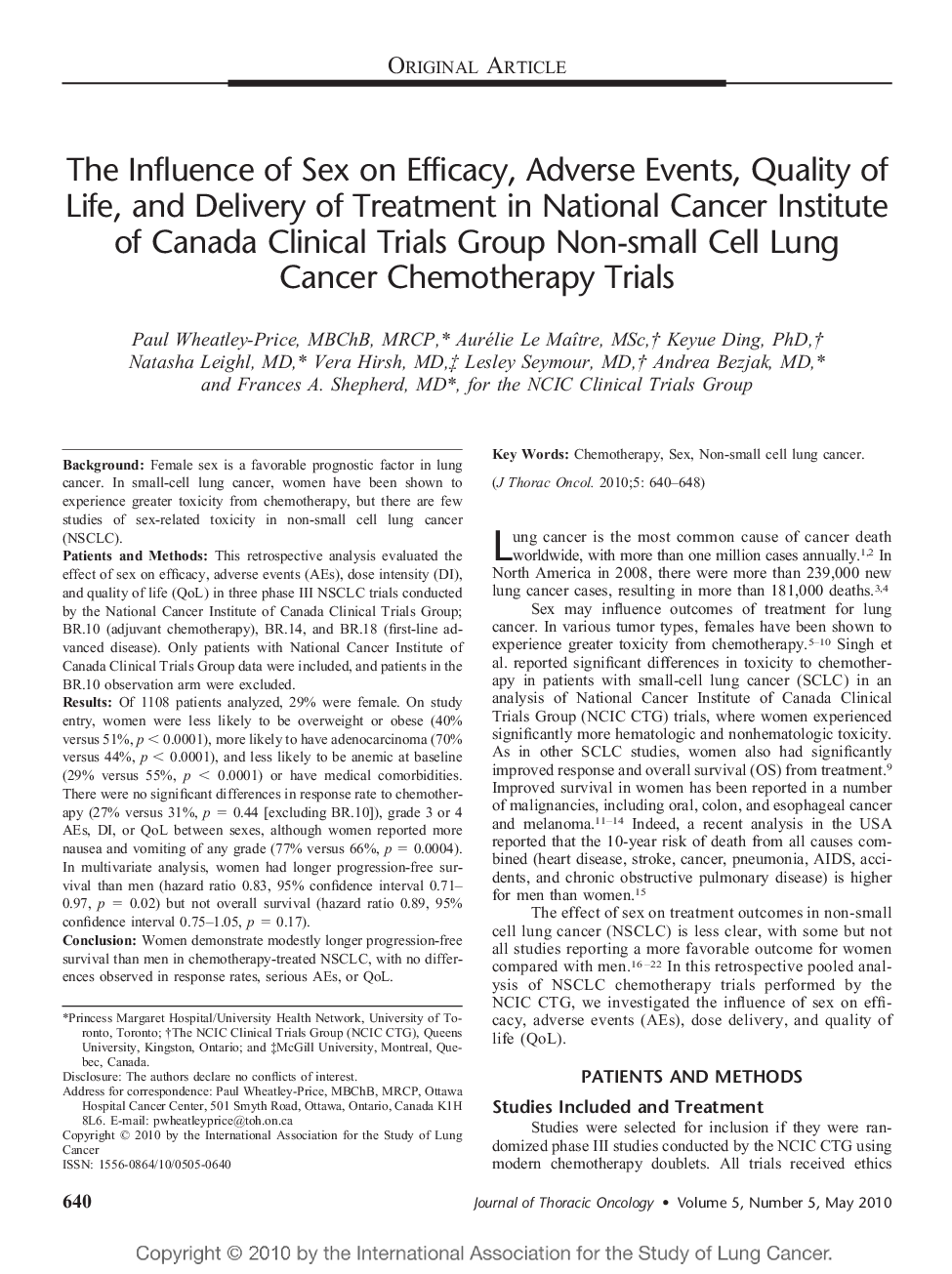| Article ID | Journal | Published Year | Pages | File Type |
|---|---|---|---|---|
| 3990913 | Journal of Thoracic Oncology | 2010 | 9 Pages |
BackgroundFemale sex is a favorable prognostic factor in lung cancer. In small-cell lung cancer, women have been shown to experience greater toxicity from chemotherapy, but there are few studies of sex-related toxicity in non-small cell lung cancer (NSCLC).Patients and MethodsThis retrospective analysis evaluated the effect of sex on efficacy, adverse events (AEs), dose intensity (DI), and quality of life (QoL) in three phase III NSCLC trials conducted by the National Cancer Institute of Canada Clinical Trials Group; BR.10 (adjuvant chemotherapy), BR.14, and BR.18 (first-line advanced disease). Only patients with National Cancer Institute of Canada Clinical Trials Group data were included, and patients in the BR.10 observation arm were excluded.ResultsOf 1108 patients analyzed, 29% were female. On study entry, women were less likely to be overweight or obese (40% versus 51%, p < 0.0001), more likely to have adenocarcinoma (70% versus 44%, p < 0.0001), and less likely to be anemic at baseline (29% versus 55%, p < 0.0001) or have medical comorbidities. There were no significant differences in response rate to chemotherapy (27% versus 31%, p = 0.44 [excluding BR.10]), grade 3 or 4 AEs, DI, or QoL between sexes, although women reported more nausea and vomiting of any grade (77% versus 66%, p = 0.0004). In multivariate analysis, women had longer progression-free survival than men (hazard ratio 0.83, 95% confidence interval 0.71–0.97, p = 0.02) but not overall survival (hazard ratio 0.89, 95% confidence interval 0.75–1.05, p = 0.17).ConclusionWomen demonstrate modestly longer progression-free survival than men in chemotherapy-treated NSCLC, with no differences observed in response rates, serious AEs, or QoL.
